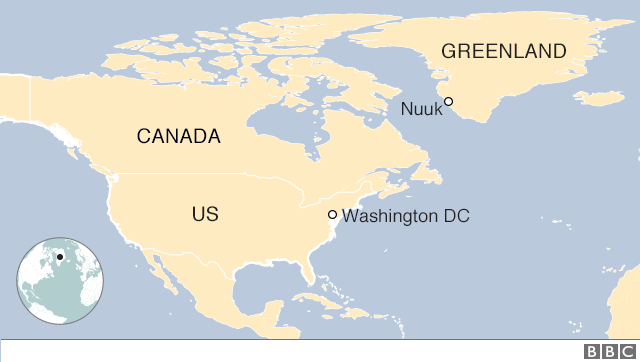The Caravan Issue: Is This UK City Becoming A Ghetto?

Table of Contents
The Rise of Caravan Encampments
The number of caravan sites in Seabrook has increased dramatically over the past five years. While precise figures are difficult to obtain, anecdotal evidence and observations from local residents suggest a threefold increase in the number of caravans and traveller sites within the town's boundaries. This rapid growth can be attributed to several factors. The lack of affordable housing in the area, coupled with increasingly stringent planning regulations for traditional housing developments, has inadvertently pushed many, including traveller communities, towards caravan living as a viable, if temporary, alternative. Furthermore, the relative ease of setting up a caravan site compared to gaining planning permission for permanent structures contributes to this trend.
- Specific examples: A new caravan site has emerged near the old railway line, another near the estuary, leading to visible increases in caravan numbers.
- Number of caravans and residents: Estimates suggest over 100 caravans now occupy these unofficial sites, housing potentially hundreds of residents.
- Changes in local demographics: The influx of caravan dwellers has noticeably altered the demographic landscape of Seabrook, leading to concerns about the long-term impact on the town's character and identity.
Resident Concerns and Perspectives
Residents living near the newly established caravan sites have voiced numerous concerns. Their anxieties are primarily focused on the perceived negative impacts on their quality of life and property values.
- Increased crime rates: While official crime statistics haven't shown a dramatic spike, residents report an increase in petty theft and anti-social behaviour in areas near the caravan sites.
- Impact on property values: Many fear that the presence of caravan sites will depress property values, making it harder to sell their homes in the future.
- Noise pollution and anti-social behaviour: Complaints about noise pollution, particularly during night-time hours, are frequent. Residents also cite instances of littering and irresponsible waste disposal.
- Sanitation and waste management issues: Concerns exist regarding inadequate sanitation facilities and the potential for environmental contamination.
- Strain on local resources: The increased population puts strain on local schools, hospitals, and other public services.
"It's not about prejudice," explains Margaret, a long-term resident, "it's about the impact on our community. We're worried about the future of Seabrook."
The Council's Response and Policies
Seabrook Council has implemented various measures to manage the growing number of caravan encampments. These include issuing eviction notices for illegal sites, tightening planning regulations for new caravan parks, and exploring the possibility of providing alternative accommodation for traveller families. However, the effectiveness of these policies remains debatable.
- Specific council policies and initiatives: The council has increased its enforcement of bylaws related to waste disposal and anti-social behaviour.
- Successes and failures of the council's approach: While some illegal sites have been successfully cleared, the underlying issues of affordable housing and lack of suitable accommodation for travellers remain unaddressed.
- Funding allocated: The budget allocated to tackle the issue has been criticised as insufficient by many residents.
- Public perception: The council's response has been met with mixed reactions; some praise their efforts while others criticize their lack of proactive solutions.
The Traveller Community Perspective
Understanding the "Caravan Issue UK Ghetto" requires acknowledging the perspective of the traveller community. Many travellers face significant challenges in accessing suitable and affordable housing. They often experience discrimination and a lack of understanding from the settled community.
- Legal rights of travellers: Travellers have legal rights to pitch their caravans on certain land, but navigating the legal system can be complex and challenging.
- Challenges faced in accessing housing and services: Access to healthcare, education, and other essential services can be limited for traveller children and adults.
- Impact of negative public perception: The negative perception often associated with traveller communities exacerbates their difficulties in finding suitable accommodation and integrating into wider society.
- "We're not looking for special treatment," states David, a community leader, "just the same opportunities as everyone else to access safe and affordable housing."
Is "Ghetto" an Accurate Term?
The use of the term "ghetto" to describe the situation in Seabrook is highly problematic. The term carries a heavy historical baggage, evoking images of segregation, poverty, and social exclusion. While there are undoubtedly challenges and concerns associated with the increased number of caravan sites, applying the label "ghetto" is inflammatory, inaccurate, and risks perpetuating harmful stereotypes.
- Definition and historical context of the term "ghetto": The term historically refers to areas of forced segregation and discrimination.
- Arguments for and against the use of the term: While some may argue that the term highlights the social and economic disparities, it's ultimately a reductive and overly simplistic description.
- More neutral and accurate language alternatives: Phrases like "areas of concentrated caravan dwelling," "emerging residential challenges," or "social housing needs" offer more nuanced and accurate descriptions of the situation.
Conclusion
The "Caravan Issue UK Ghetto" in Seabrook is a multifaceted issue requiring a nuanced and balanced understanding. It involves the legitimate concerns of residents, the challenges faced by the traveller community, and the limitations of the council’s responses. While the term "ghetto" is inappropriate and inflammatory, the underlying issues of affordable housing, social integration, and resource management must be addressed constructively. We urge readers to engage with this issue responsibly by researching the "Caravan Issue UK Ghetto" further, contacting their local council to express their concerns, supporting relevant charities working with traveller communities, and promoting respectful dialogue and understanding. Let's work together to find sustainable solutions that benefit all members of our community.

Featured Posts
-
 Fanatics Supporting The Celtics Back To Back Nba Finals Bid With Exclusive Merchandise
May 09, 2025
Fanatics Supporting The Celtics Back To Back Nba Finals Bid With Exclusive Merchandise
May 09, 2025 -
 Cowherd On Tatum A Persistent Critique And The Question Of Recognition
May 09, 2025
Cowherd On Tatum A Persistent Critique And The Question Of Recognition
May 09, 2025 -
 Uk Government Considers Visa Restrictions For Specific Countries
May 09, 2025
Uk Government Considers Visa Restrictions For Specific Countries
May 09, 2025 -
 Investigation Into Racist Stabbing Death Woman Suspect
May 09, 2025
Investigation Into Racist Stabbing Death Woman Suspect
May 09, 2025 -
 Car Dealers Renew Opposition To Ev Mandates Industry Fights Back
May 09, 2025
Car Dealers Renew Opposition To Ev Mandates Industry Fights Back
May 09, 2025
Latest Posts
-
 Geopolitical Shifts Greenland Denmark And The Trump Administrations Impact
May 10, 2025
Geopolitical Shifts Greenland Denmark And The Trump Administrations Impact
May 10, 2025 -
 Trump Uk Trade Deal Impact And Implications
May 10, 2025
Trump Uk Trade Deal Impact And Implications
May 10, 2025 -
 How Trumps Actions Reshaped Greenlands Relationship With Denmark
May 10, 2025
How Trumps Actions Reshaped Greenlands Relationship With Denmark
May 10, 2025 -
 Key Points Of Trumps Forthcoming Trade Deal With Britain
May 10, 2025
Key Points Of Trumps Forthcoming Trade Deal With Britain
May 10, 2025 -
 Trumps Legacy A Closer Look At Greenland Denmark Relations
May 10, 2025
Trumps Legacy A Closer Look At Greenland Denmark Relations
May 10, 2025
